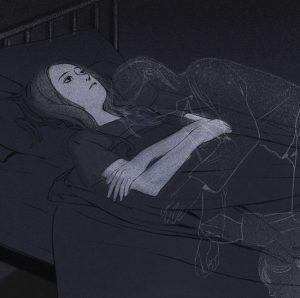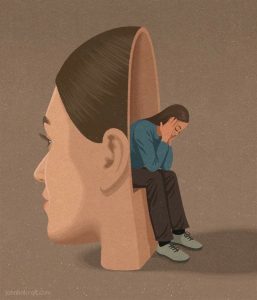I am a 20–year-old university student from Lahore. I am suffering with Depersonalisation and Derealization Disorder. It has been around 1.5 months since this condition and I have trouble connecting with reality. I have existential crisis and sometimes I don’t feel human. I get severe anxiety because I don’t feel anything is real. I don’t know how to tackle this situation. I feel hopeless. Please help!

Shahrukh’s Response:
Dear Anon,
Experiencing this condition can be really distressing, especially because it’s impacting your ability to connect with yourself and your experiences. The Depersonalization/Derealization disorder can be the result of several factors, and in a lot of cases, it is temporary. However, if you feel that it is persistent, there are ways to go about diagnosis and treatment. Let’s dive into this a little bit further.

What is Depersonalization/Derealization?
It falls under the category of dissociative disorders, which indicates that a person has become disconnected from their thoughts, feelings, body and environment. They are, however, still in touch with their reality and are fully aware that what they’re experiencing is out of the realm of their what they would consider “normal”. It can deeply impact one’s sense of awareness, consciousness and memory. This condition is often a response to severe trauma, which can be caused by:
There might be other causes which include but are not limited to: sleep deprivation, hallucinogenic drugs or high levels of stress.
Diagnosis/Treatment
It’s crucial to get a psychiatric consultation on this, and undergo the proper testing protocol to ensure that they are no underlying medical conditions, and making sure the criteria for the disorder are met.
While there is no medication for the Depersonalization/Derealisation Disorder, you can work on treating it through other avenues:
• Medication: if the symptoms of the condition are too overwhelming, you can also opt for medication to help with symptom management. This would, again, would require a consultation with your psychiatrist, who would be able to recommend a treatment plan in terms of what kind of medicine, dosage and how long you’ll be taking it for.
***
Anon, I know you must feel really helpless and scared right now, and that’s okay. Try the treatment methods laid out in this article, and be as easy on yourself as you can during this time. Get yourself the help that you need. I wish you all the best on your journey towards healing and grounding. All the best!

The above article is written by Shahrukh Shahbaz Malik who is trained in humanistic integrative counselling at CPDD in the UK and currently has her own private practice in Karachi. The views expressed in this article are those of one expert. They do not necessarily represent the views of Mashion, nor do they represent the complete picture of the topic at hand. This article is for informational purposes only and is not a substitute for medical diagnosis, treatment or therapy.








What do you think?
You must be logged in to post a comment.